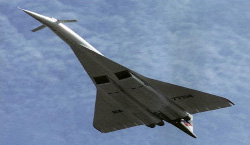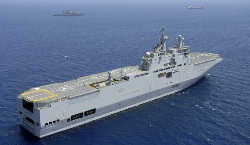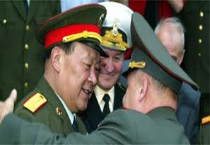Putin's pride - - danger for the world
By Toby Westerman
As the Obama administrations draws down our forces to pre-WWII levels, and even front-line military officers are dismissed when in action against the enemy, Russia is doing something quite different. Russian president Vladimir Putin is proudly boasting of his nation's "offensive and defensive" weaponry which is so advanced that "other armies in the world" do not yet have their equal, according to a Kremlin-controlled Russian-language website.
 Russia's feverish military build-up began in 2008 and is projected to continue through 2020. The Kremlin is determined to rival the U.S. armed forces. Moscow is almost completely remaking its military, and has developed, or is process of developing, new models of jet fighters, bombers, intercontinental ballistic missiles, hypersonic missiles, submarines, and surface ships. Putin has also shaken up the Russian top brass with a completely re-done command and control structure.
Russia's feverish military build-up began in 2008 and is projected to continue through 2020. The Kremlin is determined to rival the U.S. armed forces. Moscow is almost completely remaking its military, and has developed, or is process of developing, new models of jet fighters, bombers, intercontinental ballistic missiles, hypersonic missiles, submarines, and surface ships. Putin has also shaken up the Russian top brass with a completely re-done command and control structure.
The Russian army itself is projected to become more of a volunteer, professional force, much less reliant on draftees. Military pay and housing are also improving as the build-up proceeds.
There are problems, however. Russian industry is having difficulty producing modern, technically sophisticated weaponry. Moscow has turned to the West for assistance, and the West has obliged. The most enthusiastic supporter of the Russian arms industry is France, which is building two Mistral-class helicopter assault carriers. The deal for the carriers was first struck in 2008, and the delivery dates for the ships, one in 2014 and the other in 2015, have remained firm despite the Russian invasion of Ukraine's Crimean province.
 The Mistral carriers are ideal for the rapid deployment of elite troops and support vehicles. One of the carriers is to be deployed in the Black Sea, possibly out of the recently captured port of Sevastopol on the Crimean peninsula. The second carrier is slated to be used in the area around several Japanese islands occupied by Russia since the end of World War II. Tokyo wants the islands returned, Moscow refuses.
The Mistral carriers are ideal for the rapid deployment of elite troops and support vehicles. One of the carriers is to be deployed in the Black Sea, possibly out of the recently captured port of Sevastopol on the Crimean peninsula. The second carrier is slated to be used in the area around several Japanese islands occupied by Russia since the end of World War II. Tokyo wants the islands returned, Moscow refuses.
While France has decided to go through with its carrier deal with Russia, Western military aid has dried up following the Crimean invasion. The Russian military and political elite are now reviving the Soviet strategy of having all military equipment domestically produced.
How long Western nations can resist a lucrative Russian market and follow France's example is difficult to assess, but exporting military technology for short term gain is tempting to nations with weak or stagnant economies.
With or without Western assistance, Moscow is determined to field an armed force comparable to the U.S. and NATO in terms of training, technological expertise, and overall effectiveness.
Russian military prowess is only one part of the threat which the United States will be facing very shortly. While Putin and the Moscow elite are glowing with pride as the Russian military begins to compare favorable with what Russians increasingly regard as the legendary Red Army, the Kremlin is not prepared to go it alone against the United States.
Putin's pride does not blind him to the need for friends in his struggle with the United States, and in the same statement about Russia's military might, Putin also refers to "our partners," which, he adds, Russia is "glad to have."
Moscow's "partners" include the Peoples Republic of China (PRC), which is engaging in a military build-up of its own. Putin's Latin American "partners" may, in the future, supply bases for Russian aircraft and naval forces. In addition, Cuba is a floating spy base for Russia and China. Electronic signals broadcast from the U.S., especially from the north-east section of the nation, are intercepted and analyzed. Targets include political as well as military communications.
Cuban intelligence officers and their agents operate very effectively within the United States, and are also an important source of information for Moscow and Beijing.
 Putin is particularly "glad" to have the PRC as a "partner." Moscow has stated that the political elites in both nations have nearly identical interests. One of the areas of common interest is the Asia-Pacific region.
Putin is particularly "glad" to have the PRC as a "partner." Moscow has stated that the political elites in both nations have nearly identical interests. One of the areas of common interest is the Asia-Pacific region.
Cooperation between Russia and China can make life very difficult for U.S. allies in the area. Japan is particularly vulnerable. Unfortunately for Tokyo, both Russia and China have reasons for weakening Japan Moscow does not want to see a strong Japan as a competitor for the Russian-occupied islands which Japan still claims. Moscow is building up its naval, air, and land forces near Japan, and Russian aircraft periodically violate Japanese airspace. China is ready to confront Tokyo over a chain of uninhabited islands (Senkaku to the Japanese, Diaoyu to the Chinese) in the South China Sea, and area which is also one of the world's most important shipping lanes.
If Russia and China are ever allowed to intimidate Japan and possibly reduce Japan to a dependent state, the United States would be seen as powerless, and unable, or unwilling, to protect its allies. If America retreats from the Asia-Pacific region, the independent island of Taiwan would fall to China's overwhelming might, and even the Philippines and Australia would find themselves in danger.
The United States would, in effect, no longer be a world power.
In such a situation, the United States would rapidly find itself as dependent on the will of Moscow and Beijing. Russia and China will then be the de facto arbiters of the world, and Americans would then find that even in domestic politics, the political elite of Moscow and Beijing would have a controlling interest.
Free people, in order to remain free, must remain loyal to each other. Any sign of weakness will bring on the most calamitous consequence.
© Toby Westerman
August 23, 2014
As the Obama administrations draws down our forces to pre-WWII levels, and even front-line military officers are dismissed when in action against the enemy, Russia is doing something quite different. Russian president Vladimir Putin is proudly boasting of his nation's "offensive and defensive" weaponry which is so advanced that "other armies in the world" do not yet have their equal, according to a Kremlin-controlled Russian-language website.
 Russia's feverish military build-up began in 2008 and is projected to continue through 2020. The Kremlin is determined to rival the U.S. armed forces. Moscow is almost completely remaking its military, and has developed, or is process of developing, new models of jet fighters, bombers, intercontinental ballistic missiles, hypersonic missiles, submarines, and surface ships. Putin has also shaken up the Russian top brass with a completely re-done command and control structure.
Russia's feverish military build-up began in 2008 and is projected to continue through 2020. The Kremlin is determined to rival the U.S. armed forces. Moscow is almost completely remaking its military, and has developed, or is process of developing, new models of jet fighters, bombers, intercontinental ballistic missiles, hypersonic missiles, submarines, and surface ships. Putin has also shaken up the Russian top brass with a completely re-done command and control structure.The Russian army itself is projected to become more of a volunteer, professional force, much less reliant on draftees. Military pay and housing are also improving as the build-up proceeds.
There are problems, however. Russian industry is having difficulty producing modern, technically sophisticated weaponry. Moscow has turned to the West for assistance, and the West has obliged. The most enthusiastic supporter of the Russian arms industry is France, which is building two Mistral-class helicopter assault carriers. The deal for the carriers was first struck in 2008, and the delivery dates for the ships, one in 2014 and the other in 2015, have remained firm despite the Russian invasion of Ukraine's Crimean province.
 The Mistral carriers are ideal for the rapid deployment of elite troops and support vehicles. One of the carriers is to be deployed in the Black Sea, possibly out of the recently captured port of Sevastopol on the Crimean peninsula. The second carrier is slated to be used in the area around several Japanese islands occupied by Russia since the end of World War II. Tokyo wants the islands returned, Moscow refuses.
The Mistral carriers are ideal for the rapid deployment of elite troops and support vehicles. One of the carriers is to be deployed in the Black Sea, possibly out of the recently captured port of Sevastopol on the Crimean peninsula. The second carrier is slated to be used in the area around several Japanese islands occupied by Russia since the end of World War II. Tokyo wants the islands returned, Moscow refuses.While France has decided to go through with its carrier deal with Russia, Western military aid has dried up following the Crimean invasion. The Russian military and political elite are now reviving the Soviet strategy of having all military equipment domestically produced.
How long Western nations can resist a lucrative Russian market and follow France's example is difficult to assess, but exporting military technology for short term gain is tempting to nations with weak or stagnant economies.
With or without Western assistance, Moscow is determined to field an armed force comparable to the U.S. and NATO in terms of training, technological expertise, and overall effectiveness.
Russian military prowess is only one part of the threat which the United States will be facing very shortly. While Putin and the Moscow elite are glowing with pride as the Russian military begins to compare favorable with what Russians increasingly regard as the legendary Red Army, the Kremlin is not prepared to go it alone against the United States.
Putin's pride does not blind him to the need for friends in his struggle with the United States, and in the same statement about Russia's military might, Putin also refers to "our partners," which, he adds, Russia is "glad to have."
Moscow's "partners" include the Peoples Republic of China (PRC), which is engaging in a military build-up of its own. Putin's Latin American "partners" may, in the future, supply bases for Russian aircraft and naval forces. In addition, Cuba is a floating spy base for Russia and China. Electronic signals broadcast from the U.S., especially from the north-east section of the nation, are intercepted and analyzed. Targets include political as well as military communications.
Cuban intelligence officers and their agents operate very effectively within the United States, and are also an important source of information for Moscow and Beijing.
 Putin is particularly "glad" to have the PRC as a "partner." Moscow has stated that the political elites in both nations have nearly identical interests. One of the areas of common interest is the Asia-Pacific region.
Putin is particularly "glad" to have the PRC as a "partner." Moscow has stated that the political elites in both nations have nearly identical interests. One of the areas of common interest is the Asia-Pacific region.Cooperation between Russia and China can make life very difficult for U.S. allies in the area. Japan is particularly vulnerable. Unfortunately for Tokyo, both Russia and China have reasons for weakening Japan Moscow does not want to see a strong Japan as a competitor for the Russian-occupied islands which Japan still claims. Moscow is building up its naval, air, and land forces near Japan, and Russian aircraft periodically violate Japanese airspace. China is ready to confront Tokyo over a chain of uninhabited islands (Senkaku to the Japanese, Diaoyu to the Chinese) in the South China Sea, and area which is also one of the world's most important shipping lanes.
If Russia and China are ever allowed to intimidate Japan and possibly reduce Japan to a dependent state, the United States would be seen as powerless, and unable, or unwilling, to protect its allies. If America retreats from the Asia-Pacific region, the independent island of Taiwan would fall to China's overwhelming might, and even the Philippines and Australia would find themselves in danger.
The United States would, in effect, no longer be a world power.
In such a situation, the United States would rapidly find itself as dependent on the will of Moscow and Beijing. Russia and China will then be the de facto arbiters of the world, and Americans would then find that even in domestic politics, the political elite of Moscow and Beijing would have a controlling interest.
Free people, in order to remain free, must remain loyal to each other. Any sign of weakness will bring on the most calamitous consequence.
© Toby Westerman
The views expressed by RenewAmerica columnists are their own and do not necessarily reflect the position of RenewAmerica or its affiliates.
(See RenewAmerica's publishing standards.)

















